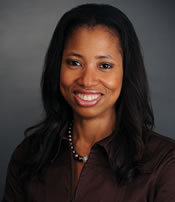|
Editor's Note: Most of you likely have read a story about Birdie Varnedore, a SparkPeople member and mother of five from Orlando who lost 140 pounds and kept it off using SparkPeople. You might not know that the amazing woman we have known as MOM5INFL is better known as Dr. Birdie Varnedore, a neurologist who specializes in treating strokes. We're proud to announce that after years of informally recommending SparkPeople to literally hundreds of her patients, Birdie has joined SparkPeople as a Resident Medical Expert. She now has an official SparkPeople expert profile, complete with a new SparkPage. Her new username is DR_BIRDIE. "Dr. Birdie" will be blogging twice a month to start, writing for other areas of the site and answering your questions related to obesity, weight loss, and health. Hi, fellow SparkPeople members! I'm Birdie Varnedore, but you may know me as MOM5INFL, a SparkPeople Success Story. I have been an active member of SparkPeople since 2007, using the tools and community here almost daily to help me achieve and maintain my weight loss goals. I started my lifestyle change on July 23, 2007, at a documented 292 pounds, but since then I have lost 140 pounds. Amazingly, my husband Nick and I started the journey together, and we have been maintaining our weight loss for almost 3 years. He lost 120 pounds! We're committed to staying healthy to inspire our five beautiful children, who range in age from 4 to 11. My weight-loss story has been featured in People Magazine, Good Morning America, "The Spark" and most recently on Oprah’s Ultimate Weight Loss Finale, but I attribute a large part of my success to SparkPeople. This wonderful community has been there for me since almost Day 1 of my journey. (I joined the site within a month of making the decision to lose weight.) But, did you also know that I am a physician as well? I am a board-certified neurologist and also board certified the in the subspecialty of vascular neurology, which means that a large part of what I do is diagnosing and treating strokes. According to the American Heart Association and the American Stroke Association stroke is the third cause of death behind heart disease and cancer and is responsible for about 1 of every 18 deaths in the United States. Typically, my patients experience strokes as the end result of years of high blood pressure, high cholesterol, and diabetes. I spend quite a bit of time explaining to stroke survivors and their loved ones what a stroke is and how it can affect them in the near future and for the rest of their lives. Preventing a second stroke is usually my main emphasis. If you have the unfortunate pleasure of becoming a patient of mine, then there is a good chance that it is due to not adequately managing one of more of your chronic medical conditions of high blood pressure, high cholesterol and/or diabetes, which in many cases can be attributed to the consequences of an unhealthy lifestyle. Quit smoking. That's that first topic on my list of suggestions when I counsel patients. It likely won't surprise you to find out I take a special interest in educating people about the roles that obesity and the lack of activity play in managing their conditions. I often refer my patients to SparkPeople.com not only as a source for accurate information about losing weight and nutrition but also as a resource for how to live a healthier and happier life in general. Unfortunately, as a specialist, my role in preventing strokes in the first place has been very limited. Having lost more than 100 pounds and also having practiced medicine as a 300-pound obese physician places me in a unique position. I know and have seen the medical consequences of living an unhealthy lifestyle through my medical training and patient interactions. I also have first-hand experience with morbid obesity and know what it’s like to feel trapped by what seems to be an impossible amount of weight to lose. My family has also experienced the unimaginable pain of losing my brother to extreme morbid obesity at far too early an age. Because of my experiences, accomplishments and credentials, I feel exceptionally qualified to talk about obesity and weight loss. When I started my career, tipping the scales at 300 pounds, I had to counsel my patients about weight loss. These conversations were so difficult because I felt hypocritical. It was like an AA sponsor reeking of alcohol yet telling a newcomer not to drink. They knew it, and I knew it. I have emerged from this weight-loss journey literally half the person I was physically, but no one knows that just to look at me, certainly not new patients. Now, when I walk into a room, I receive the opposite treatment. I am now looked at as a 150-pound physician who couldn't possibly know a thing about weight loss because they think that I have been fit my entire life. Observing how patients judge me by my appearance has led me to two conclusions that seem different yet are absolutely related. First, when I was obese, I was treated as if I didn’t have the authority to tell anyone to lose weight because obviously I had no idea how to do it. I was more of a walking billboard for what not to do! Second, when I lost the weight, I was looked at as that doctor who couldn’t possibly understand what it was like to be obese. Interesting position, isn’t it? What these scenarios have in common is that they both illustrate the point that they are excuses. These scenarios truly demonstrate the fierce resistance to change that many people have when it comes to their relationship with food. I am a living and breathing example that it can be done. I have fought on both sides of the battle of the bulge. I know that fatalistic feeling that losing a massive amount of weight was impossible. I know and I have used that excuse in the past. Through my experience, I now fully understand that excuses should be viewed as obstacles that need to be addressed and removed. Unfortunately, many physicians feel that obese patients are lazy and unmotivated. This assessment is unfair and from my own experience, I know that most obese people are not lazy and unmotivated; they just need help with removing obstacles (excuses). Because I have the experience of changing my own life by losing this weight I feel that I am a much more authoritative and knowledgeable resource than the average physician. I know that there are challenges to be faced at every stage of the process and that it is difficult to change. It's more than a little challenging. Through starting, losing, and maintaining, I know the entire process weight loss journey, and I have an incredible amount of respect for each and every one of you on this journey. As they say, if it were that easy then we’d all be fit! I am now at your disposal through blogs, articles, and other avenues here on SparkPeople. My hope is that through these avenues I can provide assistance to you and your families to achieve weight loss. I will balance my compassion and empathy for your situations with my education and expert advice because I do remember that there are two sides to every story. Being a member of SparkPeople’s outstanding expert panel will help me utilize what I feel is my unique position of being an authority on what it takes to both change your lifestyle as well as to share with you information from a medical perspective. Understanding the medical implications of obesity is necessary and compliments your motivation to stay consistent in your pursuit of health and happiness. I am honored to be able to play a part of helping you stay healthy and to hopefully inspire you through my continued success with maintenance. Thank you Chris "Spark Guy" Downie for all that you have done to create this truly special and remarkable oasis of accurate information and support. What questions do you have for Dr. Birdie? What topics would you like her to cover? |
Popular Entries
More From SparkPeople |















